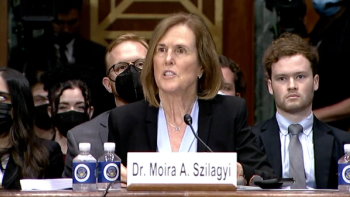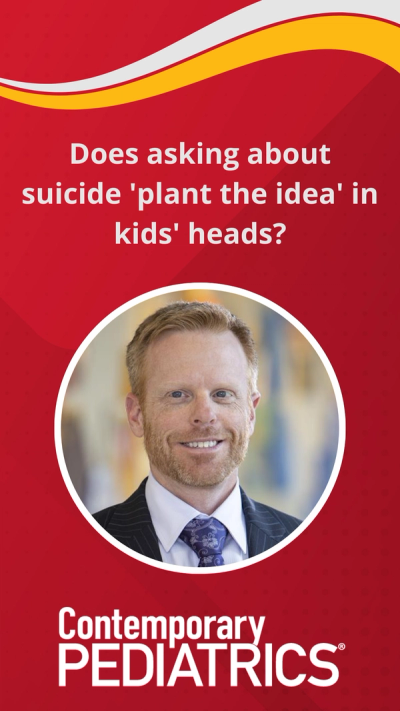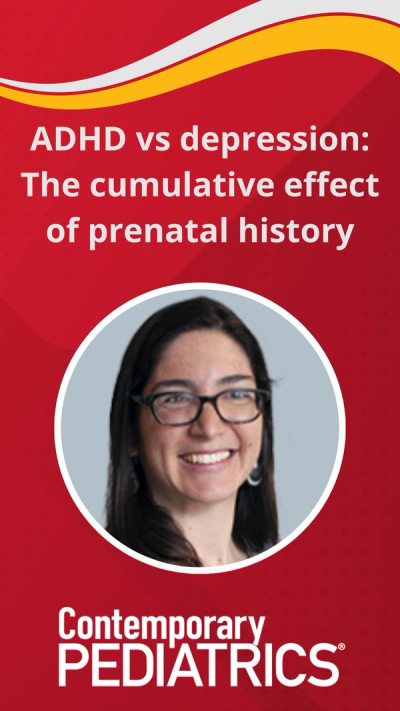
Depression
Latest News
Latest Videos
Shorts
CME Content
More News

Digital therapeutics help kids build emotional regulation and coping skills, supporting pediatric care while waiting for specialized mental health services.

Adolescent borderline personality disorder linked to high risk of ADHD, schizophrenia in later years
New international findings show BPD diagnosis in teenaged years may be a critical indicator of subsequent mental disorder into young adulthood.

Approximately 1 in 5 youths who identify as a sexual gender minority will undergo a gender identity change in their adolescence; however, such changes do not appear to impact their mental health.

Investigators sought to evaluate characteristics of adolescents with a history of depression who do not endorse risk via the PHQ item 9, which is commonly used to screen for self-harm and suicide risk.

Medicaid registry data show parents and guardians whose children have been referred to CPS are more than 3-fold likely to have a substance use disorder.

A study recently published in Nature Mental Health found how social stress in adolescence can have long-lasting effects in female mice, with implications for postpartum depression (PPD) in humans.

A new study found female teens and young adults were more likely to have an increased antidepressant dispensing rate during the pandemic than male peers.

Across a variety of concerns, the overuse of devices and screen time was the top concern for parents listed in the 2023 Top 10 Child Health Concerns for Parents, released by the C.S. Mott Children’s Hospital National poll on Children’s Health.

Visits to primary care centers for mental health disorders saw an overall increase during the COVID-19 pandemic compared to a prepandemic period.

This brain imaging study was the first to look at the position of depression and systemic inflammation in brain measures while including the largest sample of patients with psoriasis to date.

In a recent interview, Thomas Young, MD, chief medical officer and founder for nView Health, outlined tools which pediatricians can use to provide their patients with proper care for mental health disorders.

There is no evidence in the value of screening for depression in individuals aged 11 years and younger.

Although crude results of a study showed risk of neurodevelopmental disorders doubling when exposed to antidepressants during pregnancy, these results were not observed in a fully adjusted analysis.

The American Academy of Pediatrics intends on opening a center which will allow the organization to help youths navigate through social media, improving mental wellbeing and creating healthier social media use.

A recent study found suicide attempts and suicide ideation were more common in children with genetic factors linked to suicide attempts.

The cohort study is the first to report developmental cascades between disturbed sleep and depressive symptoms throughout childhood and early adolescence.

A study by Orbis International found that children with myopia experienced significantly higher levels of depression and anxiety than their peers without vision impairment.

The stress of enduring an infectious disease pandemic expresses itself in a variety of mental health conditions, but the likelihood of experiencing particular symptoms depends on who you are.

Ahead of the US Senate Judiciary Committee hearing on gun violence prevention, the American Academy of Pediatrics announced the submission of a statement including more than 300 pediatricians sharing their personal testimonies on the subject.

A look at what the Contemporary Pediatrics® team covered this week.

Recommendations are often vague, contradictory, according to investigators.

When helping patients in the hardest moments of their lives, it is important to have empathy for them—and for ourselves.

The long-term impact of COVID-19 on mental health may not be known for years, but right now it's vital to assess mental health in teenagers to help them get the help they may require.

Adolescent oral contraceptive use is associated with a small yet meaningful increased risk of experiencing an episode of major depressive disorder (MDD) in early adulthood, especially among women with no history of MDD in adolescence.

Family health history can serve as a warning for a patient’s current physical health issues. A report indicates that it may also be helpful with mental health issues.













